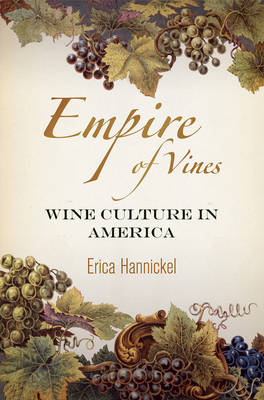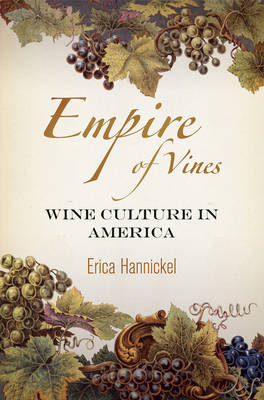
En raison d'une grêve chez bpost, votre commande pourrait être retardée. Vous avez besoin d’un livre rapidement ? Nos magasins vous accueillent à bras ouverts !
- Retrait gratuit dans votre magasin Club
- 7.000.000 titres dans notre catalogue
- Payer en toute sécurité
- Toujours un magasin près de chez vous
En raison de la grêve chez bpost, votre commande pourrait être retardée. Vous avez besoin d’un livre rapidement ? Nos magasins vous accueillent à bras ouverts !
- Retrait gratuit dans votre magasin Club
- 7.000.0000 titres dans notre catalogue
- Payer en toute sécurité
- Toujours un magasin près de chez vous
Description
The lush, sun-drenched vineyards of California evoke a romantic, agrarian image of winemaking, though in reality the industry reflects American agribusiness at its most successful. Nonetheless, as author Erica Hannickel shows, this fantasy is deeply rooted in the history of grape cultivation in America. Empire of Vines traces the development of wine culture as grape growing expanded from New York to the Midwest before gaining ascendancy in California--a progression that illustrates viticulture's centrality to the nineteenth-century American projects of national expansion and the formation of a national culture.
Empire of Vines details the ways would-be gentleman farmers, ambitious speculators, horticulturalists, and writers of all kinds deployed the animating myths of American wine culture, including the classical myth of Bacchus, the cult of terroir, and the fantasy of pastoral republicanism. Promoted by figures as varied as horticulturalist Andrew Jackson Downing, novelist Charles Chesnutt, railroad baron Leland Stanford, and Cincinnati land speculator Nicholas Longworth (known as the father of American wine), these myths naturalized claims to land for grape cultivation and legitimated national expansion. Vineyards were simultaneously lush and controlled, bearing fruit at once culturally refined and naturally robust, laying claim to both earthy authenticity and social pedigree. The history of wine culture thus reveals nineteenth-century Americans' fascination with the relationship between nature and culture.Spécifications
Parties prenantes
- Auteur(s) :
- Editeur:
Contenu
- Nombre de pages :
- 312
- Langue:
- Anglais
- Collection :
Caractéristiques
- EAN:
- 9780812245592
- Date de parution :
- 01-11-13
- Format:
- Livre relié
- Format numérique:
- Genaaid
- Dimensions :
- 157 mm x 231 mm
- Poids :
- 635 g

Les avis
Nous publions uniquement les avis qui respectent les conditions requises. Consultez nos conditions pour les avis.






